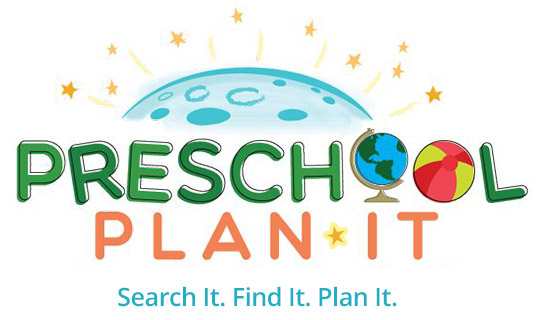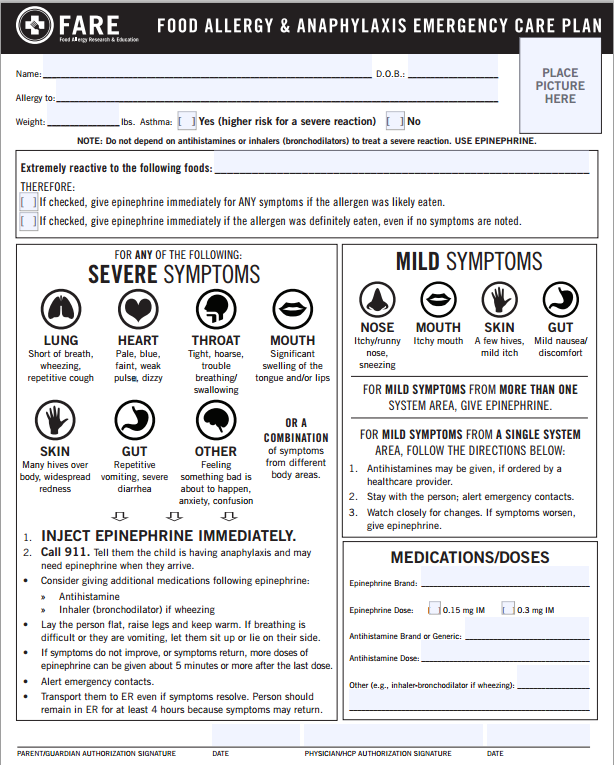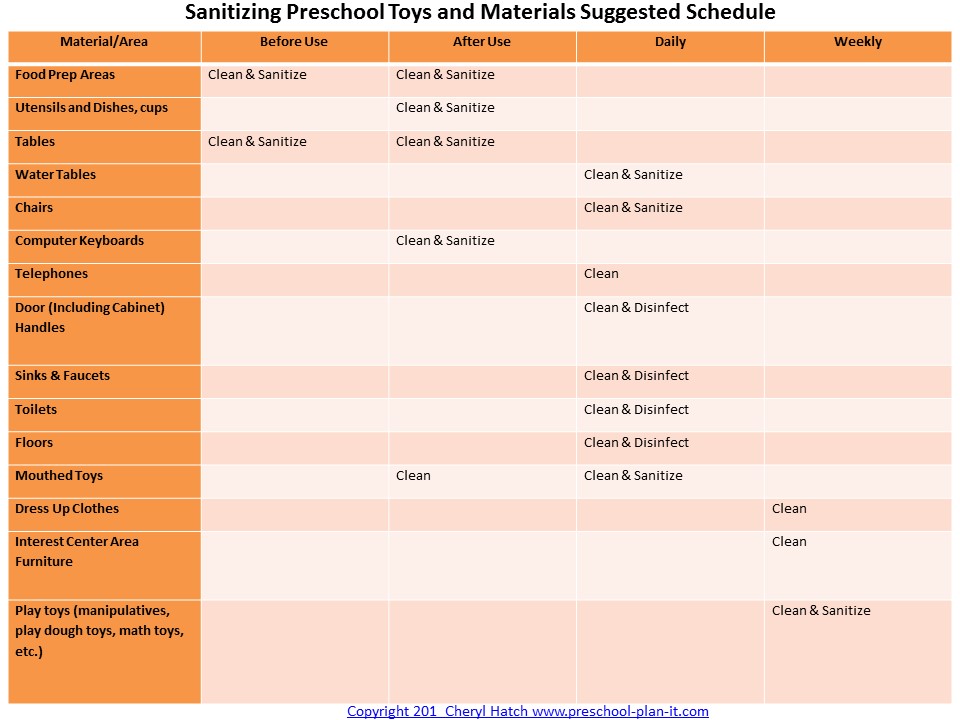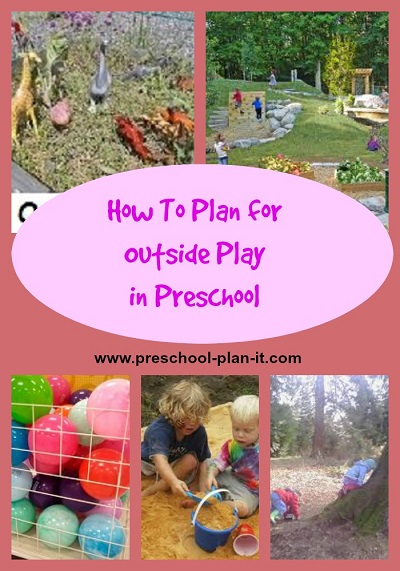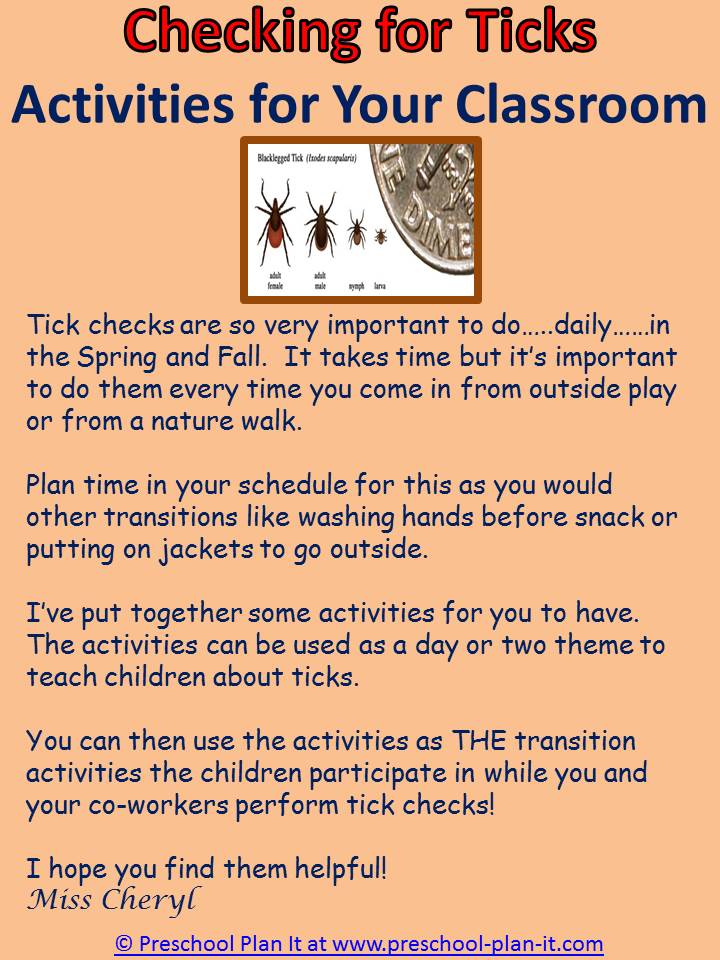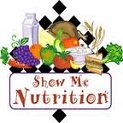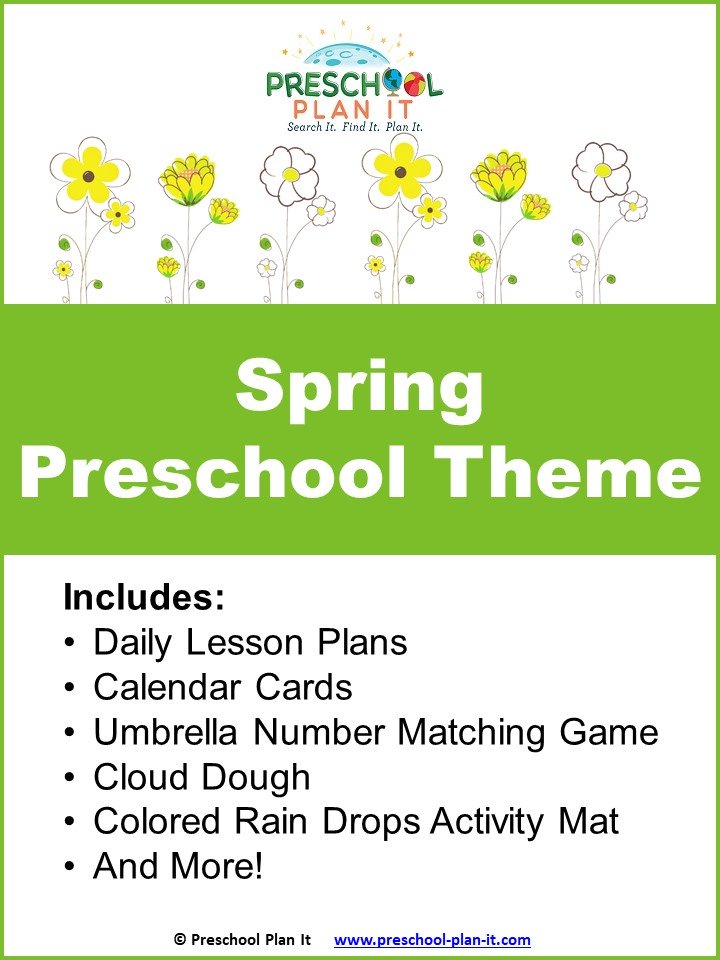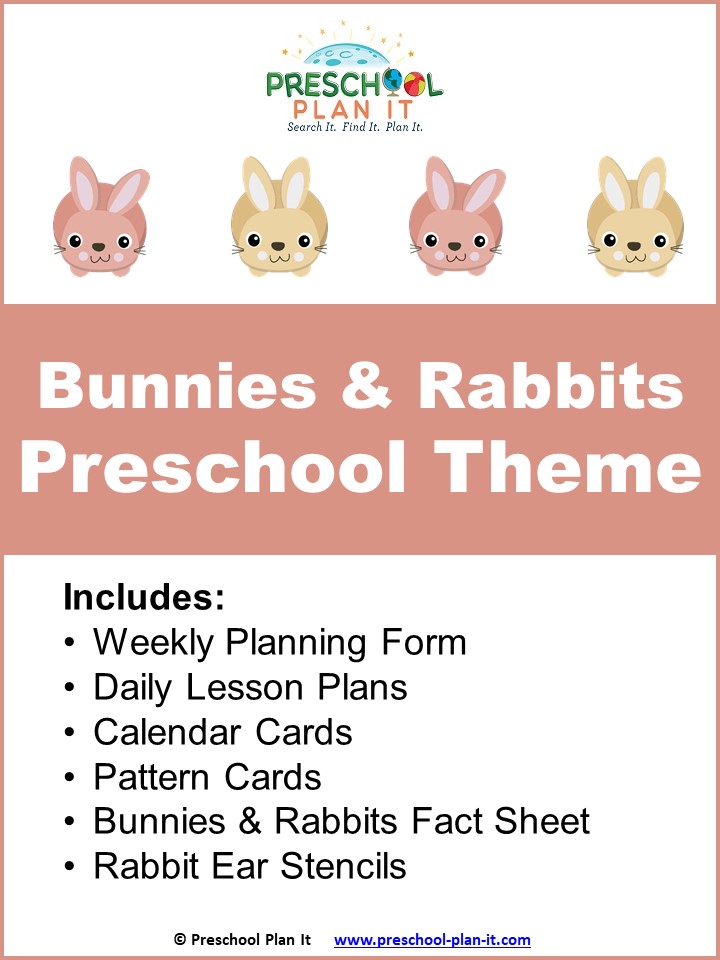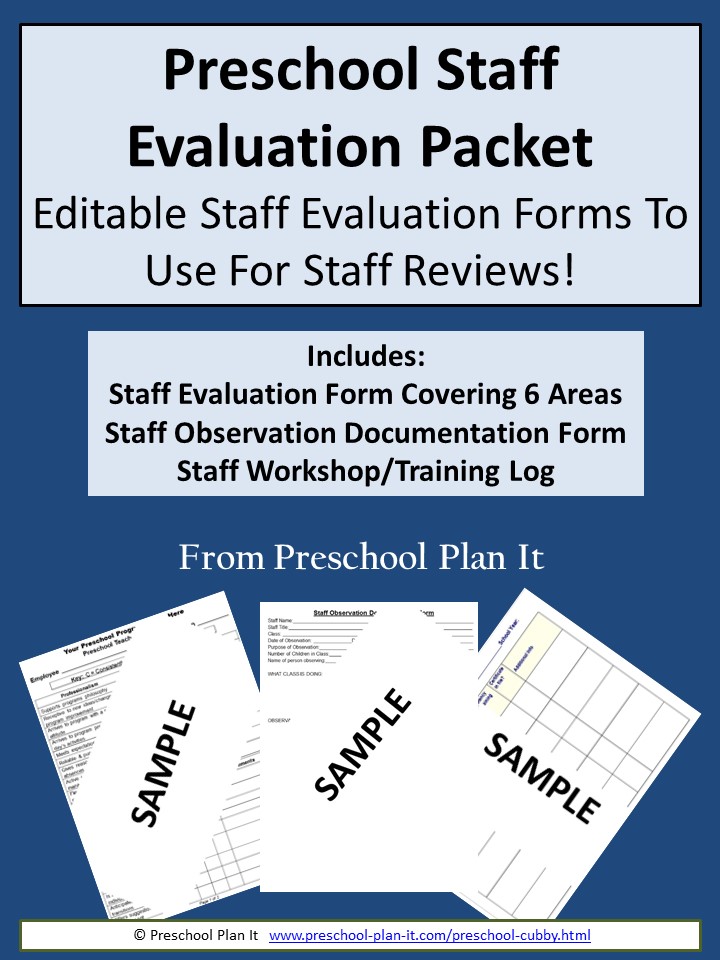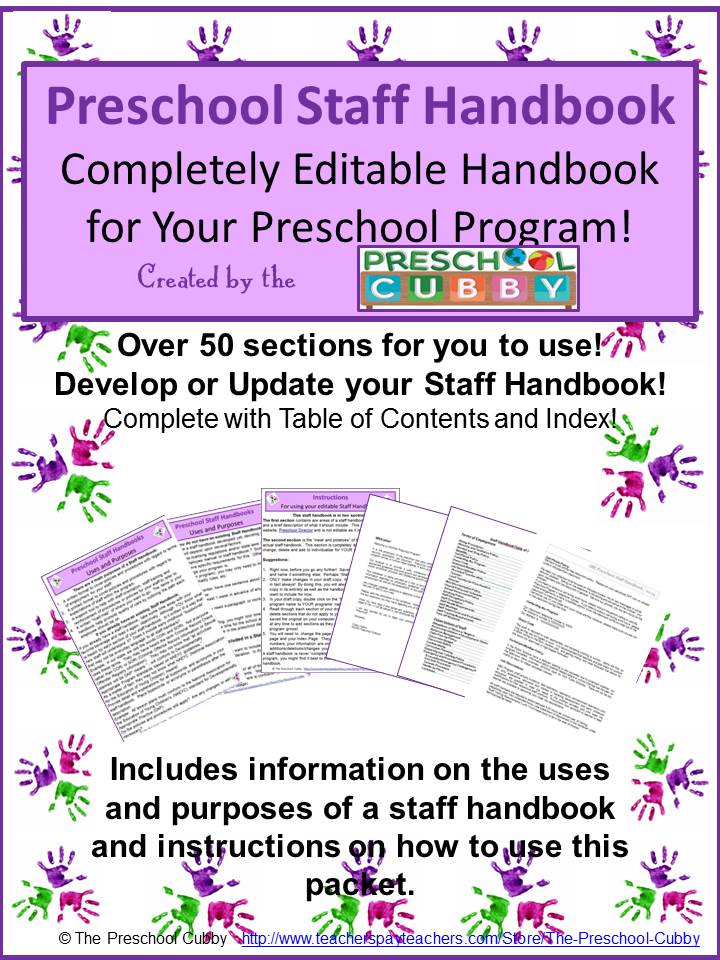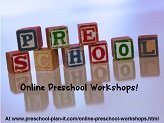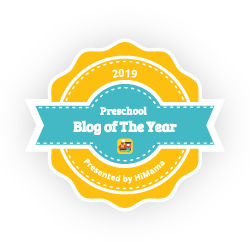- Theme Packs
- Themes
-
Preschool Planning
- Preschool Teachers
Preschool Allergies

In This Preschool Allergies Article
In this article, we will discuss:
- What Allergies Are?
- Why So Many Preschool Allergies?
- Common Allergens and Foods That Cause Allergic Reactions
- Allergy Symptoms
- Handling Allergies
- YOUR responsibilities regarding food allergies
- The family's responsibilities regarding food allergies
- Resources for teachers regarding food allergies.
What Are Allergies?
Allergies are the body's immune system's overreaction to a food protein (with regard to food allergies) or to something in the environment (with regard to allergies to such things as dust, pollen, pet dander, etc.)
Typically, antibodies in our immune system see this food protein or environmental substance as a danger to our body, even though it may not be. When that happens, a complex process begins in our bodies to create chemicals to protect us from this inherent danger. These chemicals create allergic reactions.
It is important to note that there is a difference between a food ALLERGY and a food SENSITIVITY.
A food sensitivity or intolerance does not involve the immune system whereas a food allergy does.
Why So Many Preschool Allergies These Days?
The quick answer: Nobody really knows. There are several theories and hypothesis out there. Dr. Sidiqqi once had an article (published at the website Allergy and Asthma Care Center) stated that food allergies have doubled in the past 20 years and 1 in 4 people in the U.S. have environmental allergies.
Dr. Sidiqqi also pointed out that many people self, and therefore mis, diagnose themselves with allergies. This means that many people say they are allergic to a substance or a food when they have not been properly tested and diagnosed.
Conversely, people who used to believe they were just experiencing seasonal colds, sinus infections, etc. are being tested and finding out they actually do have allergies.
Common Allergens and Foods That Cause Allergic Reactions
The most common environmental allergens are dust mites, pet dander, pollen and mold.
The most common foods are: peanuts, tree nuts, soy, wheat, eggs and milk.
There are many more, this is just a listing of the most common.
What Are the Symptoms of Preschool Allergies?
Environmental Allergies
Symptoms can vary depending on the child and on the allergy.
The most common symptoms of environmental allergies are sneezing; coughing; runny nose and/or congestion; itchy eyes, throat and/or nose; wheezing and shortness of breath (for those who also have asthma).
Food Allergies
Again, symptoms vary from child to child and food allergy to food allergy and range from mild to severe.
Symptoms can include some or all of the symptoms listed above for environmental allergies; hives, itchy rashes; stomach problems such as vomiting, diarrhea, stomach (abdominal) pain, nausea.
Some severe symptoms include itchy, swelling of lips (and tongue and throat)--signs of anaphylaxis----call 911 when any of these symptoms or breathing problems appear.
Handling Preschool Allergies
If ANY symptoms of allergies are present, contact the family immediately. If any of the symptoms are severe (affecting breathing, causing pain, or numbness/swelling, itchiness in face), call 911 and then the family.
What Are YOUR Responsibilities Regarding Food Allergies?
This is a great idea for allergy awareness.
Helpful and Fun.Let Your Families Know About This!
Click Here to Learn More About the Allerbling Food Allergy Awareness Bracelet
Preschool allergies are serious and we, as early childhood educators, need to take them seriously.
It is our responsibility to be aware of any and all allergies. But that is not all. It is not enough for us to know WHAT a child is allergic to, it is even more important for us to know what the allergy symptoms for the individual child are.
I can not stress this enough. Do not assume, for example, that all children allergic to milk will get a stomach ache and vomit just because you "had a student last year with that allergy". This years student may go into anaphalaxis with this same allergy.
Again.......children with allergies, even to the same foods, may not display the same symptoms.
Before a child enters your classroom, you should know if there are any allergies. Ask this question on your registration form. If it states yes, call the parent immediately and talk, in depth, about the allergy.
Find out what causes it, what their child's symptoms have been in the past, who the doctor and/or allergist is.
So, what are your responsibilities? They are many. You need to:
- KNOW if any child has an allergy.
- DETAIL each child's allergy. Know what their allergen(s) is, the symptoms and an action plan if symptoms appear.
- INFORM others who provide care to your students about the allergy. This is on a need to know basis and would include: all staff, classroom volunteers (LINK TO THAT Page) and anyone who prepares food for the classroom.
- REMAIN CONFIDENTIAL. This goes along with the previous sentence, but it is important to cover again. Each family has a right to confidentiality. It is okay to, and you should, let all families know that there are allergies in your classroom. It is NOT OKAY to let all families know who has allergies and what their allergies are. To be blunt, it is none of their business! In addition, do not post children's allergies in public spaces.
I HIGHLY recommend the form from F.A.R.E to the right be used and placed in the enrollment folder of EVERY child who has an allergy.
Click here to download their free form.
Choose the "Food Allergy & Anaphalaxis Emergency Care Plan" (it is the first form on the page).
- ENSURE SAFETY. If there is a food allergy, you need to have a specific policy in place with regard to snacks in the classroom (think birthday parties, holiday parties, etc.) as well as foods you might use within an activity.
Example: Did you know that Fruit Loops (yes, the cereal) has coconut in it? And what is a coconut? It is a tree nut. Therefore, using Fruit Loops in a classroom where a student has a tree nut allergy should be FORBIDDEN! I know, sounds harsh. But imagine. Billy is allergic to tree nuts. You provide Cheerios for him and a few other children to use when doing a math activity. You have Betsy and some children at another table use Fruit Loops. You clean up after the activity.
Billy goes to that table later for an art project. He pulls out a chair, sits down to paint and then, a minute later, starts coughing and is having a hard time breathing. Why?
Betsy pushed her chair in earlier and there was coconut residue on her hands that was left on the chair.......that Billy just touched. He then inadvertantley scratched his chin and lip.
Cross contamination happens in ways you would never think of. Do not take the chance. Your children will not lose out in life because they could not make Fruit Loop necklaces in preschool! ;)
6. Have medication available that may be needed. Example, if the child requires an EPI if symptoms begin, the parent MUST leave on in your classroom each day, labeled by the doctor. Also, you MUST take this EPI with you at all times....this means out the the playground at recess and on field trips.
7. OBTAIN TRAINING as needed. Most CPR/First Aid trainers now include, as part of their class, training on the use of an EPI (Epinephrine) pen/injector. Ask for or seek out this training.
We were extremely blessed that the parent of our student who had an EPI pen was a nurse and provided a staff training to us on this.
8. INVOLVE the family in your classroom. Keep the parent involved in your classroom activities. Run ingredients for snacks, cooking, etc. by the family. They are your best resource!
What Are The Family's Responsibilities?
Families also have responsibilities to your program.
- Notify you of any allergies
- Provide detailed information to you about their child's allergy.
- Provide information on symptoms and treatment.
- If the child requires and EPI pen, the family should request a second pen from the doctor to be left in the classroom at all times.
- Provide contact information including: emergency contacts for them, back-up pick-up people, the doctor and/or the allergist.
Preschool Allergies Resources
Websites
Why So Many Allergies? (article)
Books
For Children:
For Adults:
Other articles you may be interested in:
Go to the Special Needs Main Page
Go to Preschool Plan It's HOME Page


About This Site:
Hey there! Welcome to Preschool Plan It! I’m Cheryl, a preschool teacher of over 20 years.
I KNOW, I know, you spend hours of time developing your preschool themes, activities and preschool lesson plans each week. You are commited to planning preschool themes and activities that are engaging hands-on, interactive, fun AND meet the goal of supporting each child’s level of growth and development.
I am commited to providing you, the preschool teacher, with everything you need to develop preschool lesson plans and preschool activities for your classroom all in one place!
READ MORE
Join My Free Preschool Teacher Tips Newsletter
You’ll receive a weekly email with planning tips and teaching ideas.
You'll also receive (on the 1st of each month) a free theme starter pack with some printables and activity ideas to get you started planning a theme!Join Now and Get Your First Theme Right Away!
© Copyright 2010-2024 Preschool-Plan-It.com | All Rights Reserved | Privacy Policy & Disclaimer
- Preschool Teachers
